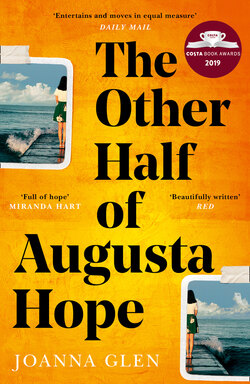Читать книгу The Other Half of Augusta Hope - Joanna Glen - Страница 13
Augusta
ОглавлениеPower-sharing was proving a trial in Willow Crescent as, a year after the first Craft Fair, the committee prepared, with renewed vigour, for the second.
Janice Brown brought up the subject of whether the Craft Fair really was the best place for Graham Cook, and Barbara Cook got straight up from the table, and, as she did so, her wrap-around Indian skirt started to unwrap itself, revealing her large white pants and her spongey right buttock.
A terrible silence fell on the committee meeting, as the front door slammed shut.
My mother said, ‘Oh dear.’
Then the others all started saying that when you are on a committee you have to have difficult conversations, and you couldn’t hide from the truth, which was plain to see, that Graham Cook put off buyers from buying.
Julia and I were sitting there, good and quiet. She was pressing flowers in a wood-framed flower press, and I was leafing through my book of Latin phrases, when out of my mouth came the words, ‘If this Craft Fair is to help Graham Cook, then he might rather you didn’t bother so much about how much money his school got, and you just let him come.’
Julia raised her hand, the way my mother used to do when my father didn’t brake early enough in the car.
My mother sat completely still as if someone had pressed pause on her, before Hilary Hawkins said, ‘Nobody ever told me that this was about raising money for Graham Cook’s school.’
‘Who got the money last year?’ I said to my mother. ‘Didn’t it go to Graham Cook’s school?’
Now Julia took my hand in hers, which meant shut up.
‘I’m not sure,’ said my mother. ‘I’m not the treasurer. The treasurer is Janice Brown.’
Julia looked at my mother and then at me and then at my mother, and I knew that my mother had lied to my father to get him to agree to hold the Craft Fair in our garden.
‘Perhaps we could give a percentage this year,’ said Janice Brown, blushing, and also glowering at me when she thought my mother wasn’t looking – and thus not loving her neighbour at all, like it said on the white plastic sacks in which she collected our old clothes to send on to African children.
After that burst of noise, there was an even bigger silence, and into that silence came the noise of the train. We let the train blast into our silence. We were quite used to it. We didn’t know that Barbara Cook had gone for a walk to compose herself. We didn’t know that she’d got stuck the other side of what everyone in Hedley Green called, with a sigh, the crossing.
Hedley Green Level Crossing was always in the news – it caused people to give birth to babies in their cars and miss their A level exams, and it was a temptation to school boys, people said, and there were always bunches of dead roses tied to the fence where a boy called Fatty Jenkins had died playing with his friends at the crossing. Except, once he was dead, you were supposed to call him Frank Jenkins, or even Francis, which was the name he was christened.
His mother had a plaque nailed to the gate, and she would often be seen there, polishing it and watching the trains go by and staring about the place as if there was some small chance that Fatty Jenkins might come walking out of the long grass, after a very long game of hide-and-seek.
Francis Jenkins, 1980–1992, who died at the crossing and is now with the angels.
